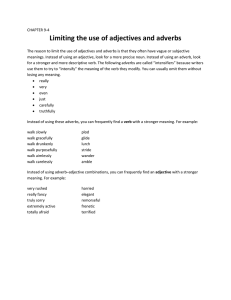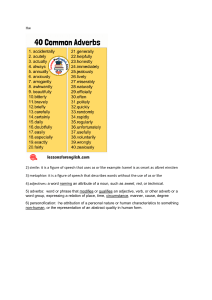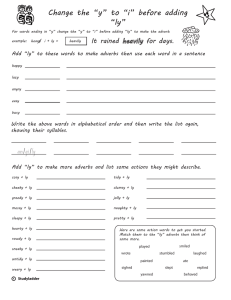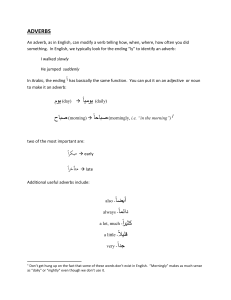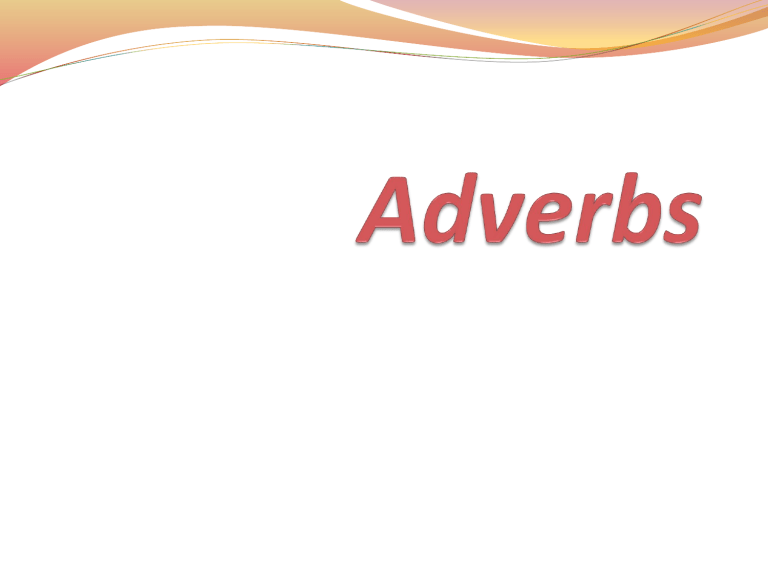
Adverbs---are words used to describe or modify verbs and give more information about a verb. Basically, most adverbs tell you how, where or when something is done. In other words, they describe the manner, place or time of an action. Commonly adverbs are formed from adjectives. Some are below. Adjectives Adverbs kind kindly happy happily wonderful wonderfully loud loudly sad sadly sweet sweetly Many adverbs end with –ly. You make adverbs by adding -ly to adjectives. Note: Some words that end in ly are not adverbs. Some adjectives end in ly too. For example: 1.She was wearing a lovely dress. 2.It was a very lively party. Points to be noted. 1.If the adjective ends in –y, replace it with –I and then add –ly. Adjective Adverb happy happily lucky luckily 2.If the adjective ends in -able, -ible or –le replace the –e with -y. Adjective Adverb gentle gently probable probably 3.If the adjective ends in -ic add –ally. Adjective Adverb basic basically economic economically This rule, however, has an exception. The adverb formed from public is publicly and not publically. Kinds of adverbs Adverbs of manner Adverbs of place Adverbs of frequency Adverbs of degree Adverbs of time Adverbs of manner say how something happens or is done. Examples: happily, slowly, carefully, angrily etc. She walked slowly. John drove carefully. The soldiers fought bravely. Adverbs of place tell us where something happens. Examples: upstairs, here, there, nearby, everywhere, in, out etc. Please come in. He lives here. The boss has gone out. Adverbs of frequency tell us how often something happens. Examples: always, ever, usually, normally, often, frequently, seldom, never etc. I am never late for office. Have you ever been to the US? I often work late. Adverbs of time tell us when something happens. Examples: today, yesterday, later, now, all day, last year. I will go there tomorrow. Let us start now. The train has already left. Some adverbs and adjectives have the same form. Examples: fast, hard, high, late, near, straight, wrong, daily, early etc. It is a fast (adjective) car. He drove fast (adverb). Thank you for your attention.
